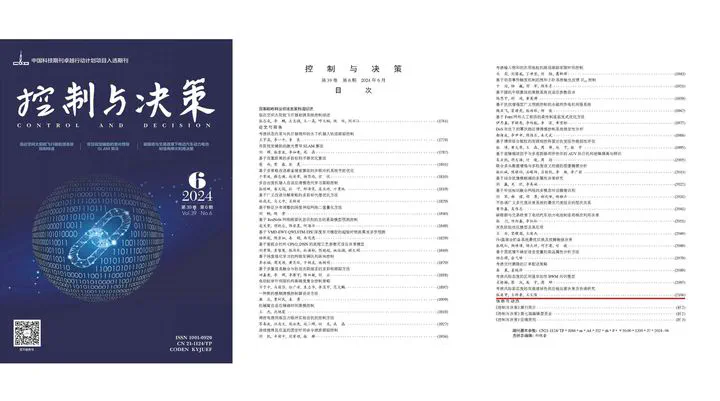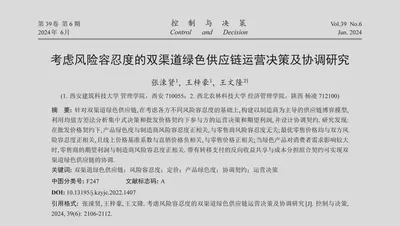Operation decisions and coordination contract in a dual-channel green supply chain with risk tolerance
 Cover and contents of Control and Decision
Cover and contents of Control and Decision
Abstract
Given the different risk tolerance of each participant, the study constructs a manufacturer-driven game model for a dual-channel green decision. We analyze the decisions and expected profits of the participants under centralized decision and wholesale price contract using the mean-variance method, and design a coordination contract. It is found that under wholesale price contract, product greenness has a positive relationship with the manufacturer’s risk tolerance,independent of the retailer’s risk tolerance. The optimal retail price is positively correlated with the risk tolerance of both participants, while the online price benchmark coefficient is negatively correlated with the direct sales price and positively correlated with the retail price. When green products have a greater impact on consumer demand, retailers’ expected profits positively correlate with manufacturers’ risk tolerance. In order to coordinate a dual-channel green supply chain, a reverse revenue sharing and cost sharing combination contract with transfer payment is used.
Type
Publication
Control and Decision, 39(06), 267-279
Operation decisions and coordination contract in a dual-channel green supply chain with risk tolerance

Introduction
This study is a Chinese-language paper titled “考虑风险容忍度的双渠道绿色供应链运营决策及协调研究” was published in “控制与决策,” which is classified as a CSCD journal, FMS T1 journal, and EI journal.
This study focuses on a dual-channel green supply chain. It constructs a manufacturer-dominated supply chain game model based on the differing risk tolerances of the parties involved. The mean-variance method is utilized to analyze the operational decisions and expected profits of participants under centralized decision-making and wholesale price contracts, and a coordinating contract is designed.